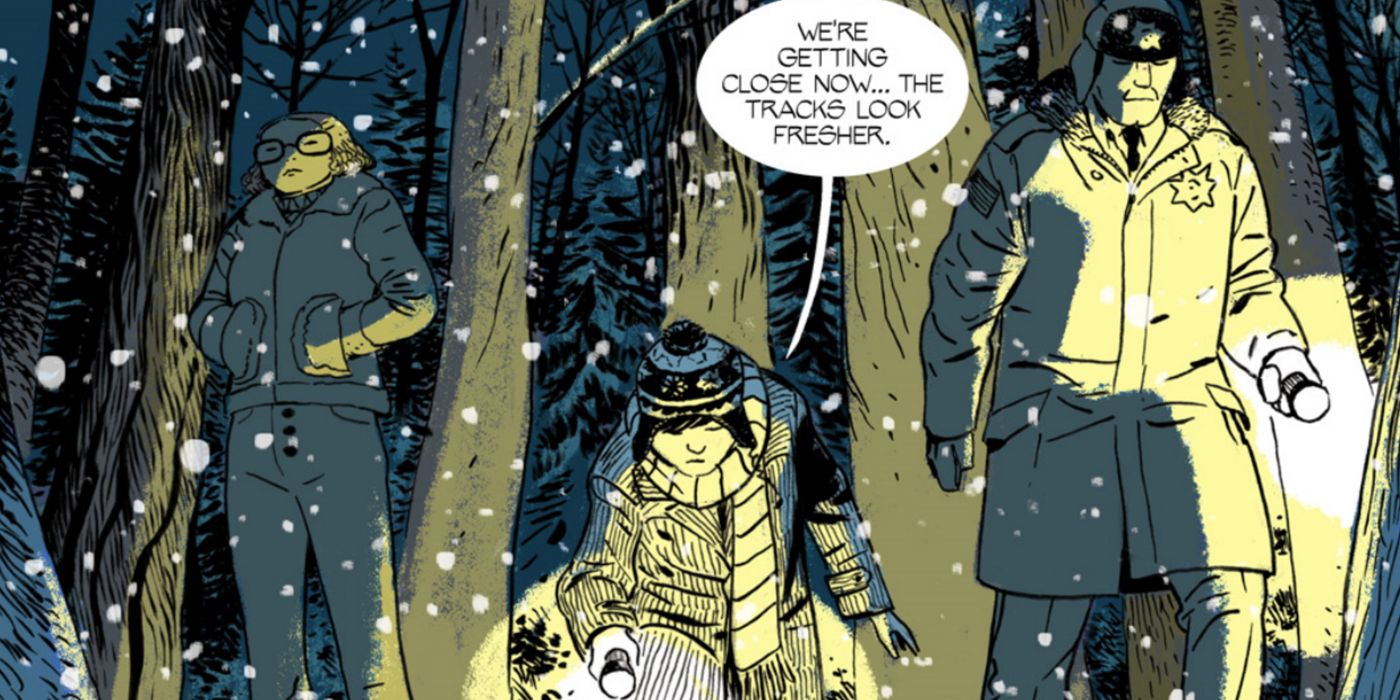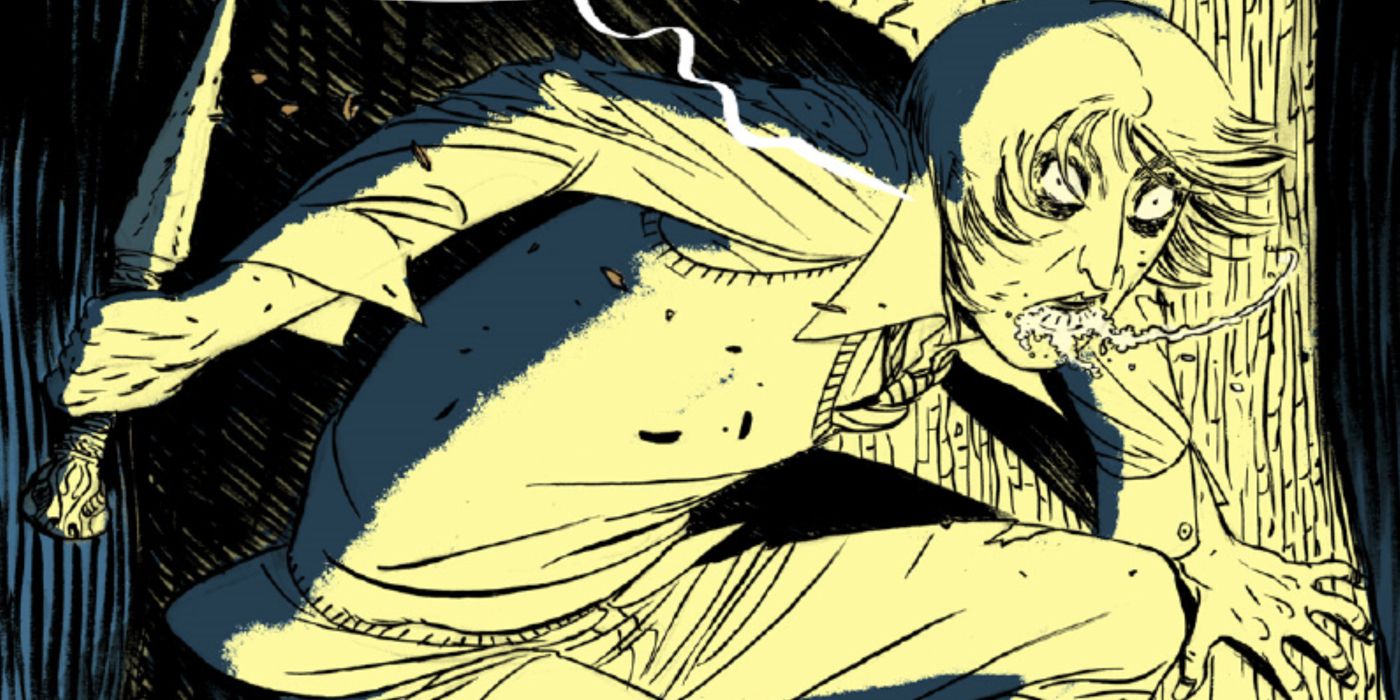WARNING: The following contains spoilers from Friday #1 by Ed Brubaker, Marcos Martin, and Muntsa Vicente, now available on Panel Syndicate.
The first issue of Friday tells the story of two childhood friends turned amateur detectives -- now in their late teens -- as they dive headlong into another mystery involving an ancient dagger, the son of their small town's richest resident, an ancient cult and a mysterious as-yet-unseen figure known only as the White Lady. And Friday Fitzhugh does all of this with Lancelot Jones while decidedly not confronting the charged moment that occurred between them the night before she went off to college.
Inspired by classic YA titles like Encyclopedia Brown and Harriet the Spy, Friday looks at children's literature heroes through the same lens that Watchmen interrogated the idea of superheroes.
As Brubaker writes at the back of Friday #1, he had long been interested in working on "a post-YA book, where the kids that solved mysteries and confronted ghosts and monsters also grew up and had the same problems we all do, the same struggles, and bad habits."
In a similar vein to Venture Bros. created by Jackson Publick and Doc Hammer, Friday deconstructs the tropes of the genre -- not merely in aging its characters away from the safety of childhood mischief and adventure, but denying them easy conclusions and bringing the past, unceasingly, into the character's present. Of course, Alan Moore, Dave Gibbons and John Higgins were doing something similar in Watchmen by humanizing superheroes, making them far less super and far more fragile in both body and spirit. In the same way that Watchmen grounded heroes in a reality that had been previously unseen within the ageless, neon-splashed mainstream comic book world, Friday is exploring the gritty underbelly of the YA genre.
By the end of the series, Watchmen is a world in which the horrors wrought by humanity can only be solved by the Ozymandias-staged invasion of a Lovecraftian monster. Friday is teeing up to be a world in which Lovecraftian monsters aren't nearly as terrifying as growing up. But like Watchmen, Friday doesn't shy away from the implications of its source material, which makes it simultaneously more nuanced and more terrifying.
Friday returns home from college, and only an hour into her return she is thrust into yet another mystery with Lancelot and his erstwhile companion the Sheriff. It's not long before they're on the heels of the wonderfully named Wilson "Weasel" Wadsworth, the son of richest resident of King's Hill, who has stolen an ancient dagger from the Archaeological Society. In a telling sequence, the narrator tells of the fun Friday once had tracking down Weasel and foiling his plans, but this encounter immediately takes on far more sinister connotations. Weasel is wilder and more dangerous than ever before. His childhood pranks and mischief have given way to something much darker.
But it's not the Lovecraftian horror that's bubbling under the surface that transforms Friday from YA to "post-YA," the true horror of the book likes in the slow, teasing out of the day before Friday left for college and all the words that were left unsaid thereafter. Friday evokes a similar quality to Watchmen in that emotional complexity is shot through each panel. There's a downtrodden, almost morose quality to Friday's looks towards her best friend Lancelot, which she admits that she's unsure if she can even consider him that anymore. What could speak more to the pain of separation and the loss of innocence?
Friday captures the throbbing pain of leaving for college mixed with the strange, effervescent pain of returning to a home that never seems quite the same. That tension is rife between Lancelot and Friday. Lancelot refuses to acknowledge that Friday has left or to let go of their past together, solving mysteries -- their phone calls are short and filled with his doings with the Sheriff while Friday has picked up a boyfriend, and other interests. She barely wants to be involved in the mystery with Weasel but is roped in by an indefatigable Lancelot, who leaves her to her own devices once things get too hot after Weasel's capture and strange ululations. He's completely unable to confront her leaving, whatever happened the day before she left, and his own aging, preferring to remain in the world of childhood detectives, where the bad guys wear rubber masks and everything unpleasant gets wrapped up with a nice lesson.
From a logical standpoint, characters like Harriet the Spy and Encyclopedia Brown were always going to grow up after their adolescent adventures, and Friday shows the kind of people they would grow up to become. The child-like whimsy of YA novels, despite their sometimes dark subject matter, has a tinge of the cocoon of childhood, but Friday slowly dispenses with this notion, shedding the safety of childhood adventure for the sometimes painful, always complex world of adults.



